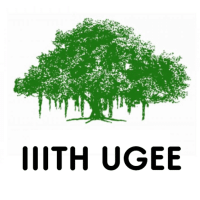JEE Exam > JEE Questions > Proving P(1) to be true is known as _______ ....
Start Learning for Free
Proving P(1) to be true is known as _______ .
- a)Basic Step
- b)Inductive Step
- c)Hypothesis step
- d)All of the above
Correct answer is option 'A'. Can you explain this answer?
Most Upvoted Answer
Proving P(1) to be true is known as _______ .a)Basic Stepb)Inductive S...
Explanation:
The process of mathematical induction is used to prove that a statement is true for all positive integers. It has three steps: the basic step, the inductive step, and the conclusion.
Basic Step:
The basic step is the first step in mathematical induction. It involves proving that the statement is true for the first positive integer, usually 1. This step is also known as the base case. If the statement is not true for the base case, then the proof fails.
Inductive Step:
The inductive step is the second step in mathematical induction. It involves assuming that the statement is true for some arbitrary positive integer k, and then proving that the statement is also true for the next positive integer, k+1. This step is also known as the inductive hypothesis.
Conclusion:
The conclusion is the final step in mathematical induction. It involves using the basic step and the inductive step to conclude that the statement is true for all positive integers. This step is also known as the inductive conclusion.
Therefore, proving P(1) to be true is known as the Basic Step of mathematical induction.
The process of mathematical induction is used to prove that a statement is true for all positive integers. It has three steps: the basic step, the inductive step, and the conclusion.
Basic Step:
The basic step is the first step in mathematical induction. It involves proving that the statement is true for the first positive integer, usually 1. This step is also known as the base case. If the statement is not true for the base case, then the proof fails.
Inductive Step:
The inductive step is the second step in mathematical induction. It involves assuming that the statement is true for some arbitrary positive integer k, and then proving that the statement is also true for the next positive integer, k+1. This step is also known as the inductive hypothesis.
Conclusion:
The conclusion is the final step in mathematical induction. It involves using the basic step and the inductive step to conclude that the statement is true for all positive integers. This step is also known as the inductive conclusion.
Therefore, proving P(1) to be true is known as the Basic Step of mathematical induction.
Free Test
FREE
| Start Free Test |
Community Answer
Proving P(1) to be true is known as _______ .a)Basic Stepb)Inductive S...
Inductive step

|
Explore Courses for JEE exam
|

|
Similar JEE Doubts
Question Description
Proving P(1) to be true is known as _______ .a)Basic Stepb)Inductive Stepc)Hypothesis stepd)All of the aboveCorrect answer is option 'A'. Can you explain this answer? for JEE 2025 is part of JEE preparation. The Question and answers have been prepared according to the JEE exam syllabus. Information about Proving P(1) to be true is known as _______ .a)Basic Stepb)Inductive Stepc)Hypothesis stepd)All of the aboveCorrect answer is option 'A'. Can you explain this answer? covers all topics & solutions for JEE 2025 Exam. Find important definitions, questions, meanings, examples, exercises and tests below for Proving P(1) to be true is known as _______ .a)Basic Stepb)Inductive Stepc)Hypothesis stepd)All of the aboveCorrect answer is option 'A'. Can you explain this answer?.
Proving P(1) to be true is known as _______ .a)Basic Stepb)Inductive Stepc)Hypothesis stepd)All of the aboveCorrect answer is option 'A'. Can you explain this answer? for JEE 2025 is part of JEE preparation. The Question and answers have been prepared according to the JEE exam syllabus. Information about Proving P(1) to be true is known as _______ .a)Basic Stepb)Inductive Stepc)Hypothesis stepd)All of the aboveCorrect answer is option 'A'. Can you explain this answer? covers all topics & solutions for JEE 2025 Exam. Find important definitions, questions, meanings, examples, exercises and tests below for Proving P(1) to be true is known as _______ .a)Basic Stepb)Inductive Stepc)Hypothesis stepd)All of the aboveCorrect answer is option 'A'. Can you explain this answer?.
Solutions for Proving P(1) to be true is known as _______ .a)Basic Stepb)Inductive Stepc)Hypothesis stepd)All of the aboveCorrect answer is option 'A'. Can you explain this answer? in English & in Hindi are available as part of our courses for JEE.
Download more important topics, notes, lectures and mock test series for JEE Exam by signing up for free.
Here you can find the meaning of Proving P(1) to be true is known as _______ .a)Basic Stepb)Inductive Stepc)Hypothesis stepd)All of the aboveCorrect answer is option 'A'. Can you explain this answer? defined & explained in the simplest way possible. Besides giving the explanation of
Proving P(1) to be true is known as _______ .a)Basic Stepb)Inductive Stepc)Hypothesis stepd)All of the aboveCorrect answer is option 'A'. Can you explain this answer?, a detailed solution for Proving P(1) to be true is known as _______ .a)Basic Stepb)Inductive Stepc)Hypothesis stepd)All of the aboveCorrect answer is option 'A'. Can you explain this answer? has been provided alongside types of Proving P(1) to be true is known as _______ .a)Basic Stepb)Inductive Stepc)Hypothesis stepd)All of the aboveCorrect answer is option 'A'. Can you explain this answer? theory, EduRev gives you an
ample number of questions to practice Proving P(1) to be true is known as _______ .a)Basic Stepb)Inductive Stepc)Hypothesis stepd)All of the aboveCorrect answer is option 'A'. Can you explain this answer? tests, examples and also practice JEE tests.

|
Explore Courses for JEE exam
|

|
Signup to solve all Doubts
Signup to see your scores go up within 7 days! Learn & Practice with 1000+ FREE Notes, Videos & Tests.






















